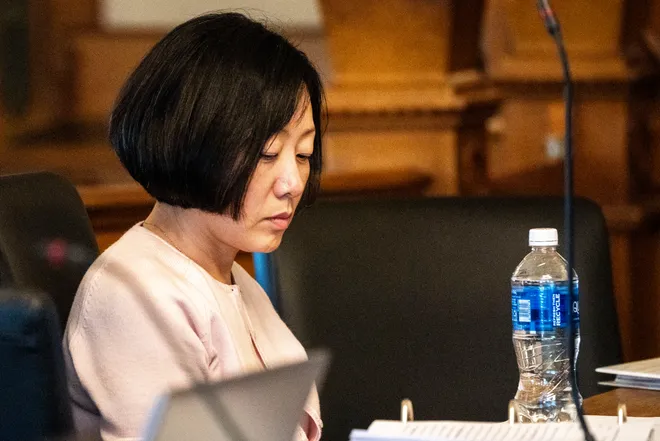Rise in liquor violations ‘not surprising’ to officials
November 11, 2004
In the last several years, Simpson College has seen an increasein many of the various aspects of college life. Enrollment isclimbing, campus facilities are expanding, and campus organizationsare growing. Now, many students and administrators are beginning tonotice another climbing trend: the amount of liquor citations beingreceived by Simpson students.
According to information received by the Department of CampusSecurity, the level of liquor citations given to students has risensignificantly in the last several years.
Chris Frerichs, director of campus security, said the number ofreported violations has increased from 42 in 2000 to 91 in2003.
“That’s just the tip of the iceberg of what’s going onunderneath,” said Stephanie Krauth, associate dean of students.
Campus Resident Assistants aren’t surprised by thestatistics.
“It’s pretty common knowledge that students drink in dorms,”said Tasha Beenken, Kresge resident assistant.
While Beenken was on duty, a student was brought to Kresge withpossible alcohol poisoning, so she had to stay up with the studentuntil the paramedics came and took her to the hospital.
The number of citations was especially high during last year’sHomecoming celebration and May Term.
“I’m not surprised that 2003 was as high as it was,” Krauthsaid. “We had a very difficult May Term, a fairly difficultHomecoming, and then a very big freshmen class.”
Krauth said the rise wasn’t surprising because the college has alarger student body and more students are beginning to drink inhigh school.
“While the majority of violations involve 18- and 19-year-olds,age 13 and 14 is becoming a common age to start experimenting withalcohol,” Frerichs said. “Students are really beginning the testthe boundaries.”
As Krauth put it “students tend to bring their habits withthem,” and this inevitably leads to a larger problem for Simpson’scampus.
Luckily, the types of violations being seen at Simpson are notbecoming more severe.
“We are a little bit lower than other schools in regards to thenumber of binge-drinking violations, which is kind of reassuring,”Krauth said. “Not good, but reassuring.”
Security policies have different levels of punishment based onthe severity of the violation, as well as the past history of thestudent.
Being part of an alcohol incident doesn’t always result in areport.
Often, students are simply asked to dump out their container andare given a warning, according to Frerichs.
After a warning is issued, there are four levels to Simpson’sliquor-violation policy.
In the first instance, or a level one violation, students arerequired to take an online alcohol education course, pay a $50 fineand perform community service.
A second violation will result in a $100 fine, 10 hours ofcommunity service and the student being referred to an alcoholeducation program.
A third violation constitutes a $100 fine, 10-25 hours ofcommunity service, a chemical dependency assessment and the studentplaced in disciplinary probation.
At this point, students living on campus will be suspended fromresidence halls and will be banned from representing the school instudent government, music, sports and other activities for aspecified period of time.
If a student violates the policy a fourth time then they will besuspended from the college for a minimum of one semester.
While most violations are simply dealt with by campus security,the Indianola Police Department can be involved if circumstancesdemand it.
“If we are worried about the safety of the student or otherstudents, then we may get the police involved,” Krauth said.
Frerichs added that in cases of state-law violation where thereis a victim, the victim has the right to press charges.
Athletes also face discipline for violating alcoholpolicies.
Aziz Haffar, head soccer coach, said that Simpson athletes areheld accountable for their actions both on and off the field.According to Haffar, a positive representation of the school isdemanded at all times.
First violations for athletes often involve a group punishmentof the entire team, but subsequent violations can be punished withsuspensions from playing.
Haffar always encourages his student athletes to call him ifthey are in an alcohol-related situation and need assistance.
“I want them to call me regardless of the hour,” Haffar said.”Believe me, I’ve done it before.”
According to an alcohol-use survey conducted by Residence Lifeevery year, 67.2 percent of students said they believe the socialatmosphere on campus promotes alcohol use. Also, 60 percent ofstudents reported binge drinking in the previous two weeks, and48.9 percent reported some form of public misconduct during thepast year as a result of drinking.












